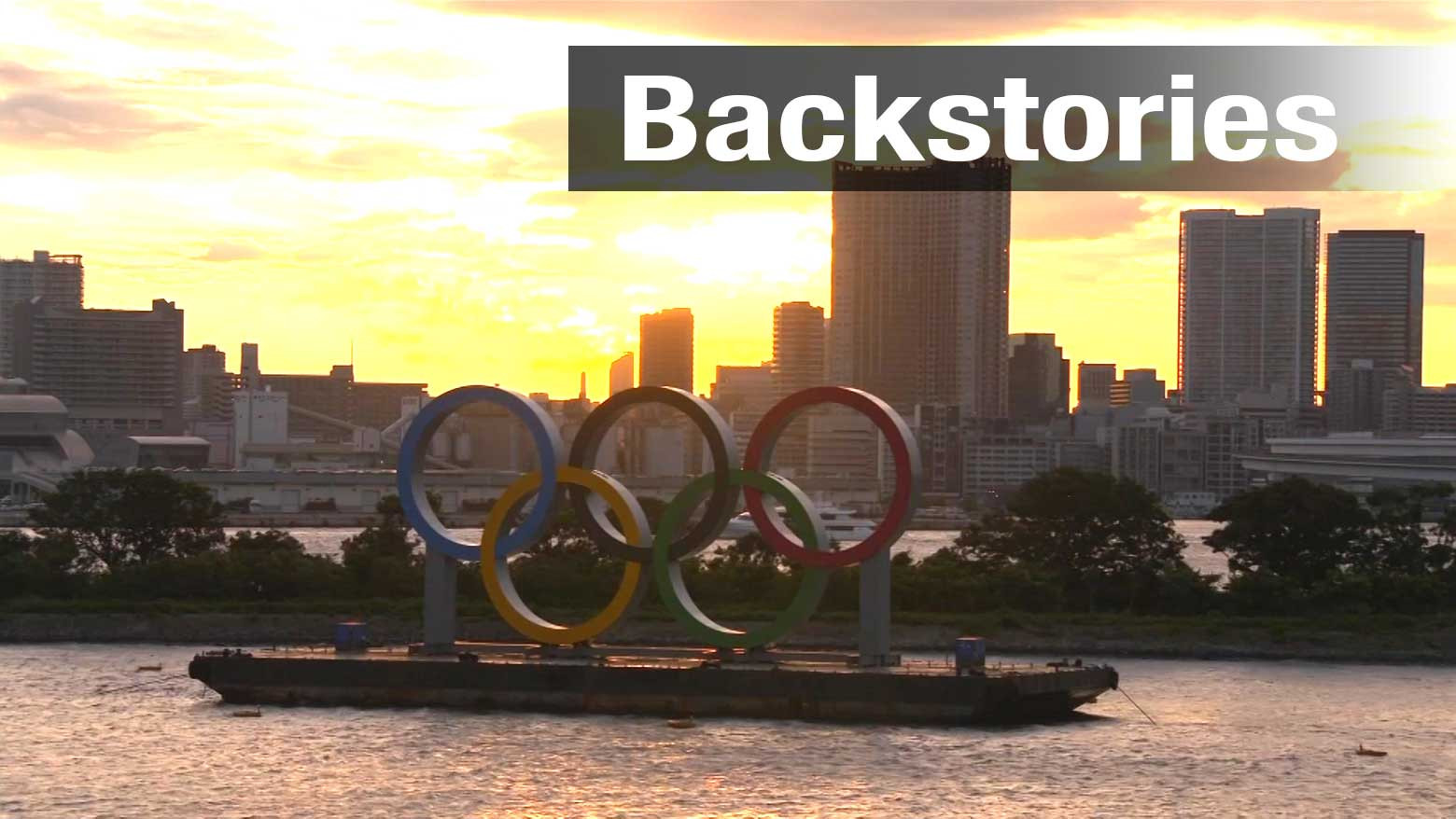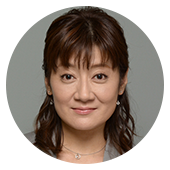"Depends on the coronavirus"
“Whether the Olympics can be held or not depends on whether human beings can overcome the coronavirus or not,” said Mori Yoshiro, the president of the Tokyo 2020 Organising Committee, in a recent interview with NHK.
Mori added that specifically, progress in the development of vaccines and treatments will be crucial in determining whether the Games are actually held or not.
“If the circumstances were to remain unchanged, then the Games could not be held,” he said. “But it’s not the kind of decision that Japan alone can make. We have to ask other countries, and the International Olympic Committee has the authority to make a decision.”
“I don’t think the current situation will continue for a year from now,” he added.
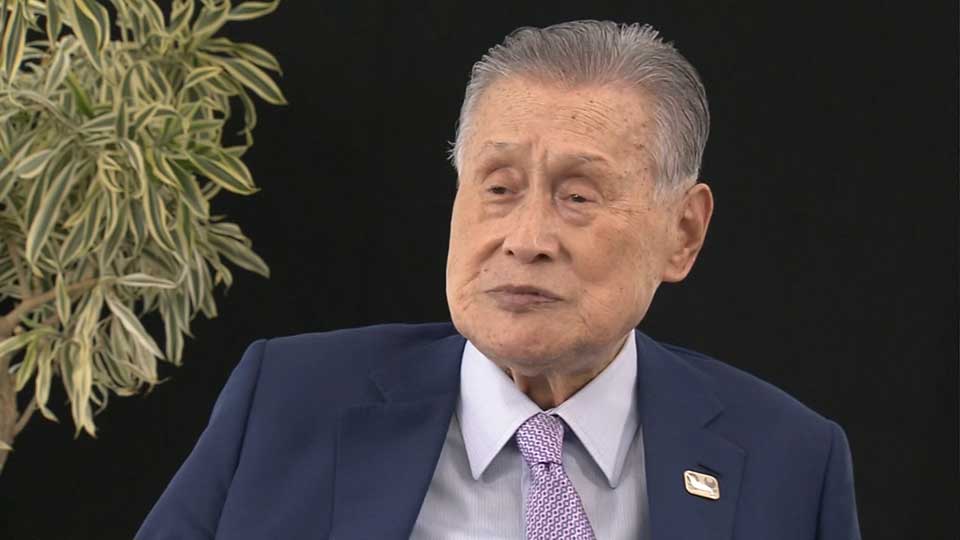
Last Friday, 2020 organizers unveiled the competition schedule for next year’s Games. It revealed that the Olympics will run for 17 days, starting on July 23, 2021, one day earlier than the start date that had been planned for this year. Athletes will compete in a record 339 events across 33 sports. The organizers say they were able to secure all of the same venues and facilities for the participants, which enabled them to construct a schedule that closely mirrors the original.
Coronavirus measures
The organizers say they will start discussions in September with the national and Tokyo governments on measures to limit the spread of the coronavirus. These include immigration controls, inspection and treatment systems, and preventive measures for hotels and transportation. The organizers say they will put out a summary of the talks by the end of the year.
They also revealed that they are considering ways to simplify the games, such as reducing the number of participants. They say they will also announce additional expenses related to these measures as early as this fall.
“We would like to see a stadium full of enthusiastic fans,” International Olympic Committee President Thomas Bach told reporters on Friday. But he added that limits on the number of spectators was one of the possible coronavirus measures the committee was looking into.
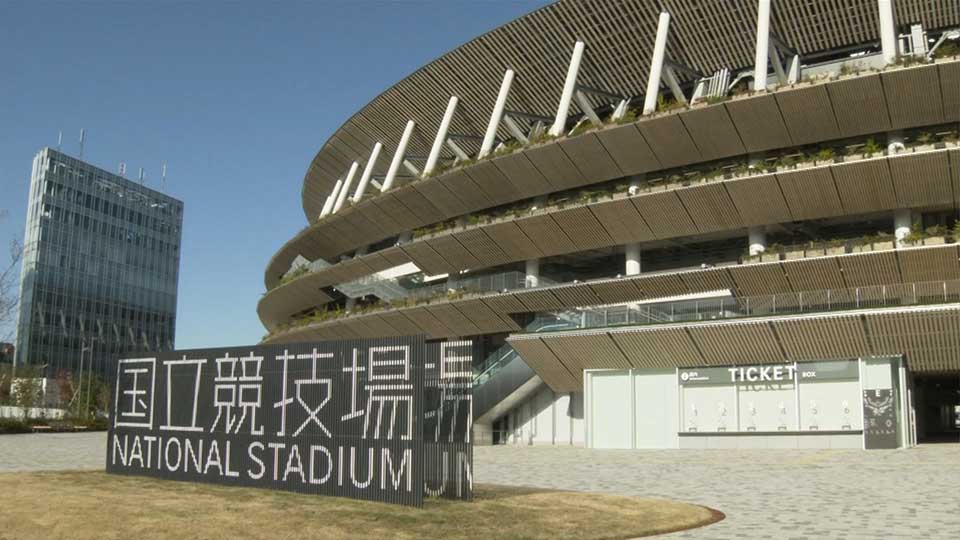
Global opinion
NHK surveyed national and regional Olympic committees and international sporting bodies this June and July on the plans for next year’s Olympics, receiving responses from 22 organizations.
Sixteen said that a decision on whether the Games will be held or not should be made at least six months in advance of the opening ceremony.
Five said they would call for another postponement if the Games cannot be held next summer. Thirteen said they think the Games should be cancelled if this were the case.
Domestic opinion
NHK conducted a telephone survey of Japanese residents about the Olympics this weekend. About 1,300 people responded.
Asked if they are interested in the Games, 71% said they are either very interested or interested to some extent. That’s down nine percentage points from a survey conducted in late March, when the Olympics were postponed until next year.
Asked about the current timeline, 35% said the Games should be delayed even further, while 31% said they should be cancelled entirely. 26% said the Games should be held as currently scheduled.
Respondents were also asked about the plans by the organization committee to simplify the Games. 70% said they approve, while 24% said they are against the plans.
42% of respondents said they are in favor of the idea of events without spectators, while 53% said they are against it.
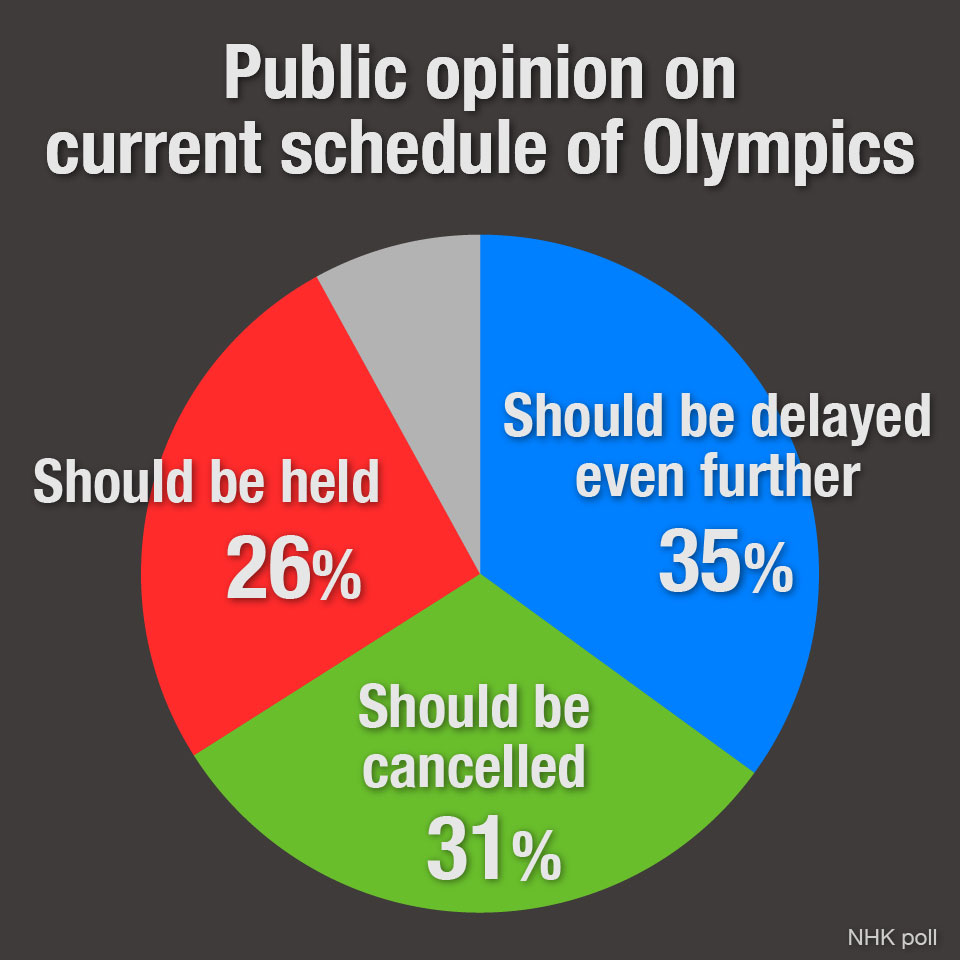
Expert: “Do your best to prevent infection.”
The director of Japan’s Disease Control and Prevention Center, Ohmagari Norio, says that strict immigration controls will be needed if the Games are to be held under the pandemic.
“The most important thing is we have to do our best to prevent an influx of COVID-19. At the same time, we have to make sure we don’t transmit the virus either. To do that, we need strict immigration rules.”
Ohmagari also stresses that the preventive measures of every country, not just Japan, will be crucial in determining whether the Games are held.
“If there are a lot of new cases, then the international community will probably be against the idea of allowing countries to send teams to the Olympics in Tokyo,” Ohmagari says. “For the Games to be held, everyone has to do their best to contain or mitigate this virus.”
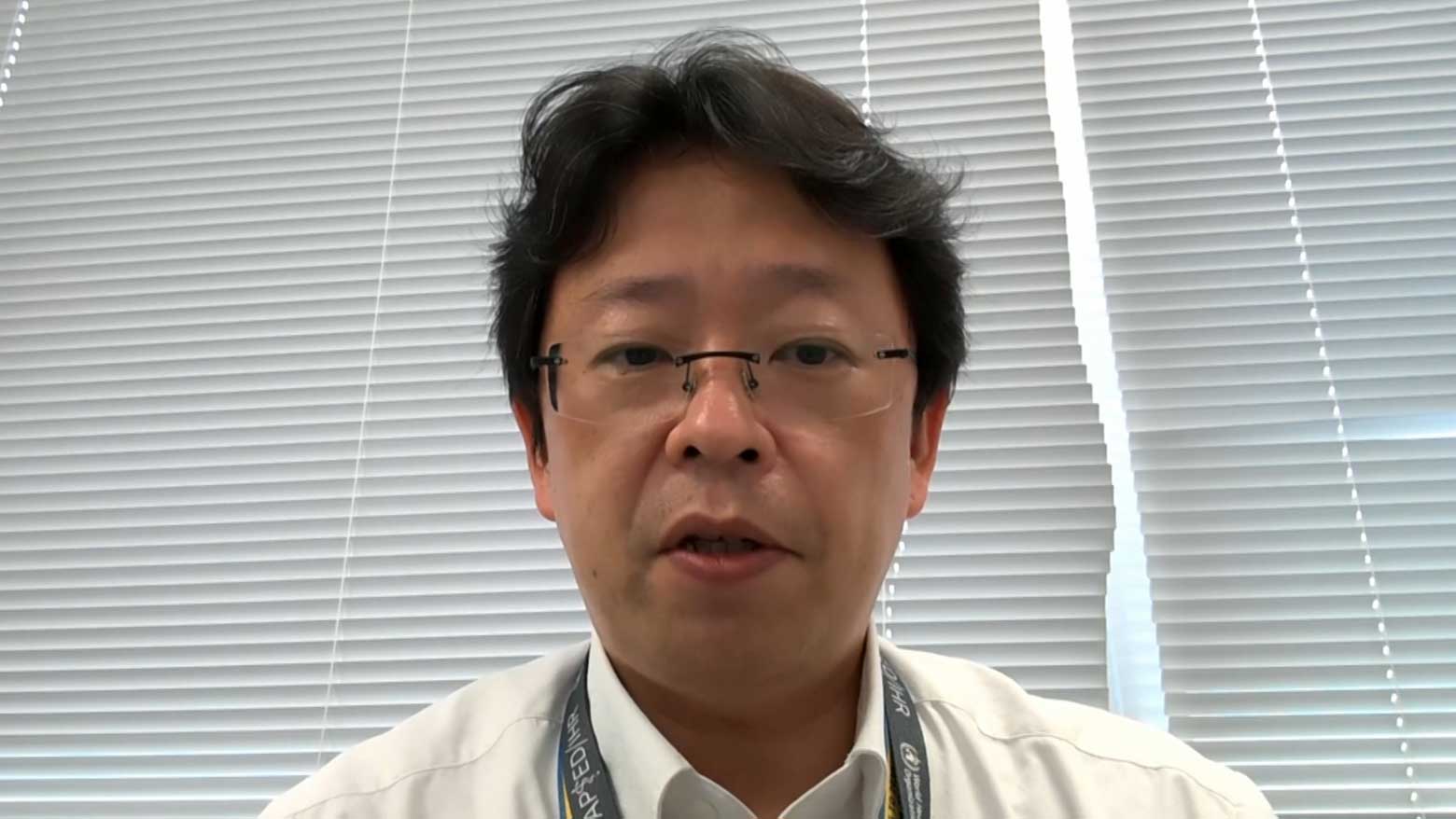
Athletes around the world continue to train under the assumption that the Games will be held next year. But with some experts saying the peak of the pandemic is still to come, it will be up to the efforts of governments across the world to ensure that the Olympics can actually be held, and that the efforts to the athletes are not in vain.
